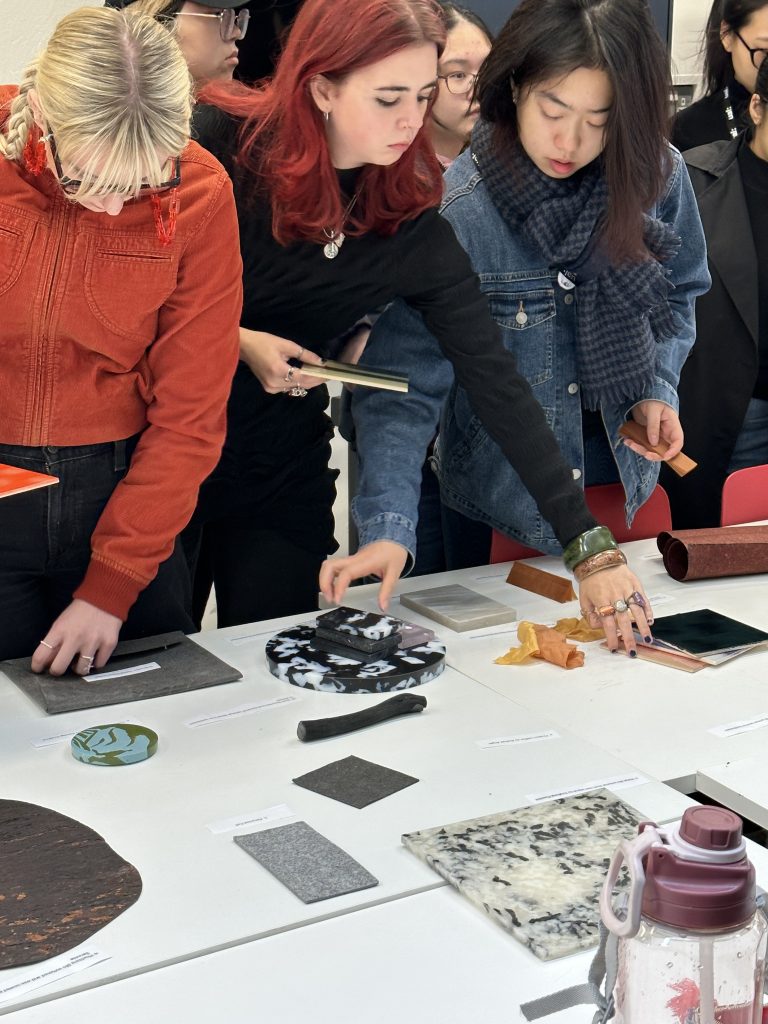
Introduction & Background
For 5 years and now I’ve been a contracted academic (Year 2 leader/Senior Lecturer BA textile design) running studio- based group learning activities as well as one-two-one tutorials. For my AL/VP time prior to my contracted year leader role I would say my knowledge was intuitive, limited to my own teaching experience in regards to assessment. But now after my time as a contracted tutor working with students throughout their academic journey my confidence has grown the more I actively give formative and summative assessment and work with diverse student cohorts. I feel one never stops developing this particular skillset.
Evaluation
To date, I have been assessing as follows:
- Year 1 BA (Hons) Textile Design, Unit 3 (5 – week duration) Fashion Project.
- Year 2 BA (Hons) Textile Design, Unit 6 (10 – week duration) Collaborative and Collective Practices.
In both cases there is an overarching challenge which dictates all actions. This challenge is predominantly time allocation given to formative and summative assessments.
- Frequently students want extra tutorial time to have summative assessment feedback explained in more detail. The written feedback is sometimes regarded as too generic or limited.
- Reading through lots of text within submissions can be very time consuming especially because of my neurodiversity.
- Hard to get true equality/parity of grades across large year cohorts.
- Hard to create more formative assessment points specifically focused on a holistic outlook on the recording and implementation of ‘Process’ with a unit submission which is a key aspect of craft based creative practice.
Moving Forward
- Formal assessment incidents, or exercises are those that are deliberately contrived. They are clearly recognised by teacher and student as assessment exercises and often interrupt the flow of normal teaching/learning activities.
- Informal assessment is that carried out during and as part of normal teaching activities.
- Anon (no date) states that process is often assessed informally, as part of the class activities: this constitutes individual levels of participation in groupwork, for example. Formal assessments of process tend to be more difficult to construct and carry out, probably because of demands for rigour and reliability. Commonly, forms of observation or self – reporting may be relied on (Anon, no date).
- Process is a prominent part of my practice (Textile Design)
- Moving forward from my learnings I will try to mitigate these challenges by adopting the following:
- To create more opportunities for informal (low stakes) ‘process’ self- assessment points within my timetabled activities. These could be in the form of one-to-one presentations or giving students more dedicated time in tutorials. These strategies will hopefully prepare them to build resilience and have a better understanding ahead of their summative assessments.
- Embed the reinforced and expectations of the assessment criteria throughout the weekly sessions to ensure clarity and enable the students to review their work and understand of the language throughout the duration of the project. This will enable them to be more reflective and contribute to developing their critical analysis. This will also empower them to co-teach and take a pro-active approach in their learning.
- Encourage more pair work focusing on the assessment criteria by offering peer reviews. This again helps develop communication skills and confidence for the students. This provides opportunities to neuro-diverse students to take notes as opposed to verbal commentary. This allows the student to think from the perspective of the assessor as opposed to student.
References
Anon (no date)